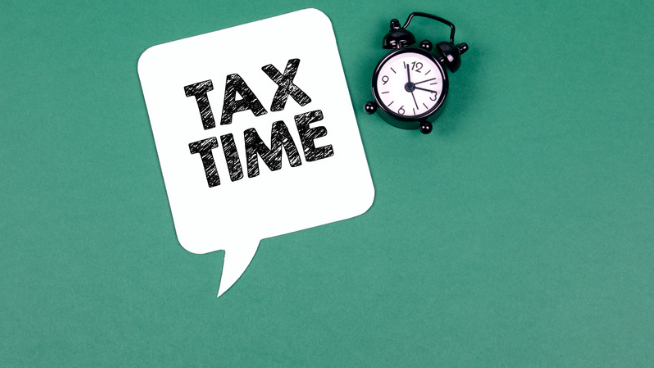Is Homeschooling Tax Deductible
Are you a homeschooling parent wondering is homeschooling tax deductible? Unfortunately, the answer is not a straightforward yes or no. The tax benefits available for homeschooling families depend on several factors, including where you live, how you homeschool, and what expenses you incur.
First and foremost, it’s essential to determine whether your state recognizes homeschooling as an educational option. If your state classifies homeschooling as a form of private education, you may qualify for tax deductions that apply to private school tuition. Additionally, some states offer income tax credits or deductions for homeschooling expenses like textbooks, educational materials, and equipment.
In terms of federal taxes, unfortunately, most homeschooling expenses do not qualify for deductions. However, if you have a child with a documented learning disability, you may be eligible for tax breaks under the Individuals with Disabilities Education Act (IDEA). To maximize your available tax benefits, it’s crucial to keep detailed records of your homeschooling expenses and consult with a tax professional for guidance specific to your situation.
Understanding Homeschooling Tax Deductions
Homeschooling is a wonderful way of educating our children, allowing us to tailor learning to each child’s unique needs and interests. However, it can also be quite expensive, especially if you’re purchasing curriculum, supplies or paying for online courses. As a homeschooler, you may be wondering if homeschooling expenses are tax-deductible. The answer is not a straightforward yes or no, but it depends on several factors.
What is Tax Deduction?
First and foremost, let’s briefly understand the term tax-deductible. A tax deduction is an expense that can be subtracted from an individual’s gross income, reducing the amount of tax owed. This means that if an individual is eligible for a tax deduction, they can reduce their taxable income, thereby paying less tax.
Homeschooling Tax Deductions
The IRS (Internal Revenue Service) does not explicitly provide tax deductions for homeschooling at the federal level. However, some states allow homeschooling families to take advantage of homeschooling tax deductions. These deductions may include curriculum, textbooks, and school-related supplies. In addition, some states allow taxpayers to apply private school tax deductions to homeschooling expenses, which are deductible up to certain limits.
Homeschooling Tax Credits
Another option for homeschoolers may be tax credits, which directly reduce your tax bill. The good news is that the IRS does offer tax credits that can be applied to education expenses. Two tax credits allowing homeschooling expenses include the American Opportunity Tax Credit and the Lifetime Learning Credit. However, these credits have specific requirements that may or may not apply to homeschoolers.
In conclusion, while there is no clear-cut answer to whether homeschooling is tax-deductible, it is important to explore all available options. Be sure to consult with a tax professional to determine if your state offers homeschooling tax deductions or if you’re eligible for education tax credits. Keep track of your receipts and expenses, and don’t hesitate to ask questions to ensure you’re making the most of any tax benefits available to you as a homeschooler.
Qualifying For Homeschooling Tax Deductions
One of the benefits of homeschooling is that it can provide tax savings for families who choose to teach their children at home. However, many people often wonder, “Is homeschooling tax deductible?” The answer is: it depends.
For homeschooling expenses to be tax-deductible, certain criteria must be met. Here is what you need to know about qualifying for homeschooling tax deductions:
-You must be responsible for your child’s education: To qualify for tax deductions, you must be your child’s custodial parent or legal guardian and be responsible for their education.
Your child must be eligible for compulsory education: Children of compulsory school age and eligible to attend public school must meet the criteria for homeschooling tax deductions.
You must comply with state homeschooling laws: Each state has its homeschooling regulations that you must comply with to qualify for tax deductions. Be sure to research the laws in your state and keep detailed records of your homeschooling expenses.
Expenses must be for educational purposes: You can only deduct expenses directly related to your child’s education. This includes expenses for textbooks, curriculum materials, and certain educational supplies. However, expenses for non-educational materials, such as sports equipment or clothing, are not tax-deductible.
You must itemize your deductions: To claim homeschooling expenses on your taxes, you must itemize your deductions on your tax return. Unfortunately, this means you cannot take the standard deduction.
It’s important to note that homeschooling tax deductions are subject to change and may vary depending on individual circumstances. Therefore, it’s always a good idea to consult with a tax professional or financial advisor before claiming any deductions on your tax return.
In conclusion, homeschooling can provide tax savings for families who meet the qualifying criteria. However, keeping detailed records of homeschooling expenses and complying with state regulations are essential to ensure eligibility for tax deductions.
If you’re considering homeschooling your child, you may wonder if it’s possible to claim homeschooling tax deductions. Unfortunately, the answer is: it depends. Unfortunately, the IRS doesn’t offer a specific tax deduction for homeschooling, but there are some expenses that you can claim, which I’ll cover in this section.
First and foremost, you must ensure you are eligible to claim homeschooling tax deductions. To qualify, you need to be a parent or legal guardian of a homeschooled child, and you should be able to itemize your deductions on your tax return. You cannot claim these deductions if you take the standard deduction instead. Also, keep in mind that homeschooling tax deductions vary by state. Some states offer tax credits or deductions for homeschooling-related expenses, while others do not.
Assuming you meet the eligibility criteria and are itemizing your deductions, here are some of the homeschooling expenses you can claim on your tax return:
Educational materials and resources: This includes textbooks, workbooks, software, and other materials used solely for homeschooling. Keep receipts and records of these expenses, separate them from personal or non-educational expenses.
Online learning programs: If you enrolled your child in an online learning program, you may be able to claim the program’s cost as a homeschooling expense.
Association dues and fees: If you are a member of a homeschooling association or co-op, you can claim the cost of membership fees or dues.
Tutoring: If you hired a tutor to help teach your child a specific subject, you can include the tutor’s cost as an educational expense.
Be sure to keep accurate records of all your homeschooling expenses, and consult with a tax professional if you have any questions about what you can claim on your tax return. While homeschooling tax deductions may be limited, every deduction counts when lowering your tax bill.



